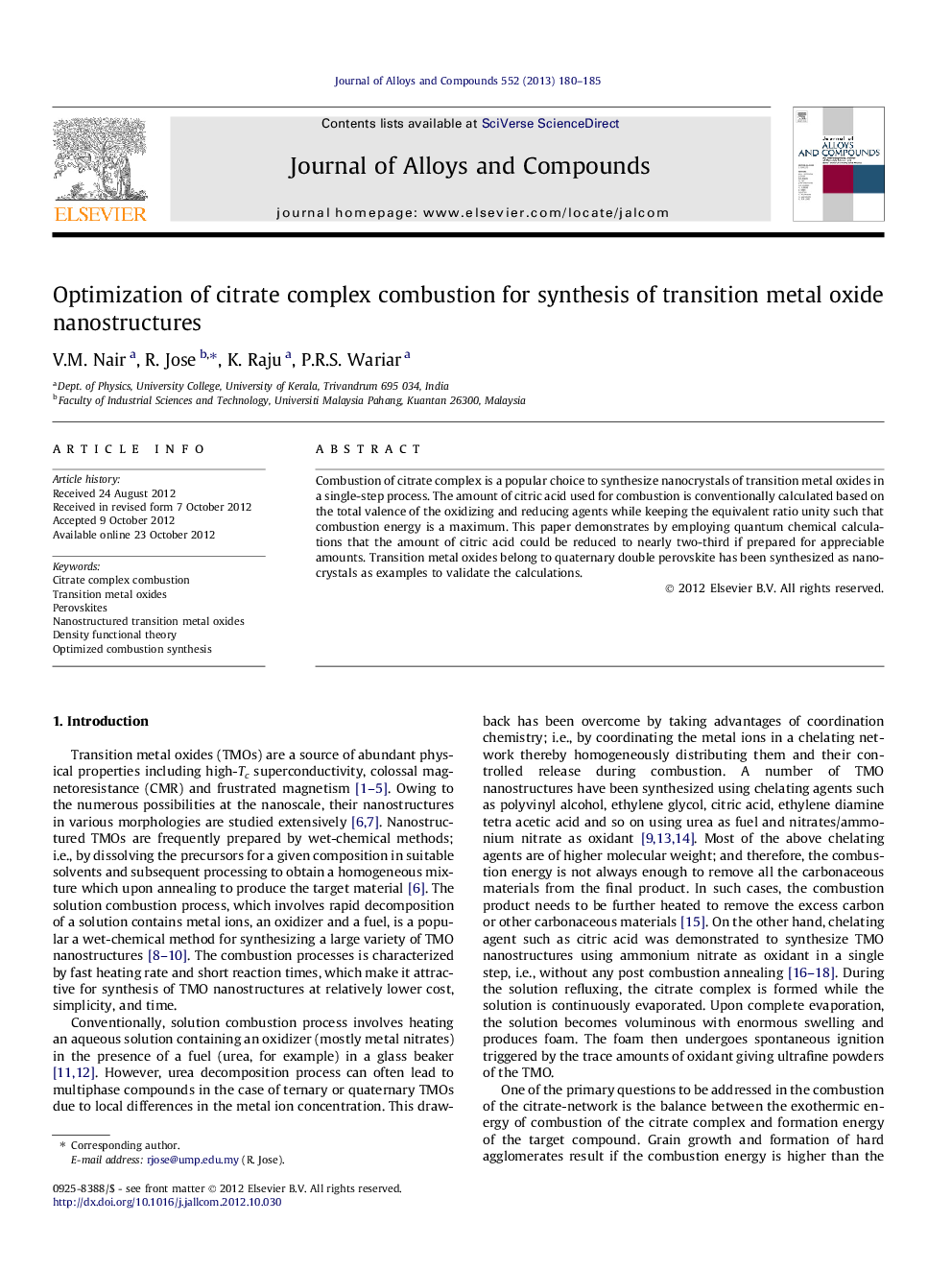| Article ID | Journal | Published Year | Pages | File Type |
|---|---|---|---|---|
| 1614810 | Journal of Alloys and Compounds | 2013 | 6 Pages |
Combustion of citrate complex is a popular choice to synthesize nanocrystals of transition metal oxides in a single-step process. The amount of citric acid used for combustion is conventionally calculated based on the total valence of the oxidizing and reducing agents while keeping the equivalent ratio unity such that combustion energy is a maximum. This paper demonstrates by employing quantum chemical calculations that the amount of citric acid could be reduced to nearly two-third if prepared for appreciable amounts. Transition metal oxides belong to quaternary double perovskite has been synthesized as nanocrystals as examples to validate the calculations.
► We optimized citric acid in a solution combustion process using DFT calculations. ► The amount of citric acid can be reduced than that is conventionally used. ► Complex perovskite ceramic oxides were synthesized to validate the calculations. ► Single phase nanoparticles were obtained using the optimized process. ► Temperature of the combustion flame was much lower for the optimized amount.
